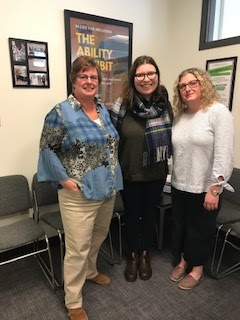
The bowl of assorted chocolates greets me as I walk into the second-floor office of Student Accessibility Services in Shain Library. It is a sweet, and sometimes bitter reminder of my struggles with a Non-Verbal Learning Difference. I always wanted to be a “normal” kid but as I advanced in my education and sought out accommodations, my perspective changed.
I chose Conn in the spring of 2014 for many reasons, but a meeting with Barbara McLlarky, the former director of the Office of Student Accessibility Services, sold Conn to me. My parents and I met Barbara and toured the Accessibility Office on an accepted students day. It was during this meeting that we discussed the accommodations I would be requesting approval for. These included extra time, the use of my computer in class and alternative formats for all readings. An alternative format is not an easy request to make. It meant we would have to create an accommodation that could be easily applied to all professors—regardless of their academic discipline. We discussed the Read&Write Gold software on my computer and found that it would play a significant part in enabling my success at the College. We also discussed experimenting with alternative ways to improve my skills in reading comprehension utilizing the Writing Center and the newly created Academic Resource Center. I felt at home within the office and upon leaving, Lillian Liebanthal offered me the first of many pieces of chocolate I have since accepted without hesitation. We walked out of the College Center at Crozier-Williams and I remember saying to my parents, “This is a safe place, and I know I can succeed here. They have my back, and that is what counts.”
That April day was four years ago. Now I often share with prospective students that each student at Conn is treated individually, and that not all learning differences are alike. Those of us who need our own accommodations in the classroom are asked to submit memos to each professor. This makes the process individualized, and is great practice for preparing to define your own needs at a personal level. Plus, I always joke that it's a great way to become familiar with professors and their office hours! As I get ready to graduate, I have become an advocate for people like myself seeking accommodations in the classroom and in the workplace. Requesting an alternative format was only the beginning of a lifelong journey and my acceptance of a unique approach to educating myself.
